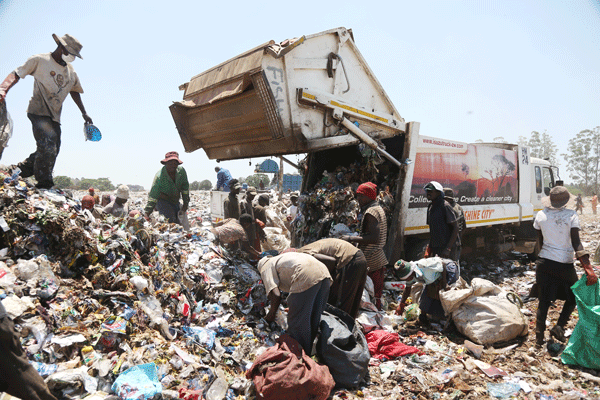GMB eyes 3,1m tonnes storage as bumper harvest beckons
Zimbabwe expects a bumper harvest of more than 3,1 million tonnes of maize this season, a surplus of 1,2 million tonnes after all local demand including that of the farmers families is met, and the Grain Marketing Board (GMB) is now working on expanding its storage capacity and setting up the collection centres for the harvest.
So far, five of the 12 silo facilities have been refurbished with work on the other seven scheduled for completion by April when the harvest starts arriving.
The 12 silo complexes can store 750 000 tonnes. There are also private silos, usually owned by milling companies who are GMB’s main customers.
In addition, the GMB can store bagged maize and other grains under canvas, as it has done in past bumper seasons, and is planning on being able to store an additional 2,5 million tonnes in this way.
Farmers rarely deliver all their harvest, needing to keep part back for family and farm consumption. With the elimination of consumer subsidies, replaced by direct payments to the very poor to buy food, the arbitrage opportunities of selling all the grain produced and buying cheaper refined meal are eliminated.
But besides the maize, there is high expectations of a large harvest of traditional grains, with the off-farm surplus again being bought by the GMB. More than 100 stacker machines to carry grain bags have been refurbished.
But even with farm requirements retained, most farmers will have a saleable surplus as a result of the several input and modern farming schemes and it is this accumulated surplus that the GMB will be buying, storing and selling to millers.
Millers will start taking delivery of their regular requirements as soon as the GMB gets its first deliveries and Zimbabwe switches from imported grain to pure local product, with regular purchases from the GMB then continuing. This will allow grain in temporary storage to be moved quickly to the millers.
To ensure that all farmers have only a short distance to travel to deliver their surplus, the GMB will be setting up more than 500 collection points. To avoid congestion, a pre-booking system, particularly for commercial farmers, will be in place at depots across the country, so farmers ready to deliver will have the delivery day and depot sent to them.
The payment delays will be minimised with payment for deliveries processed at depots without waiting for head office approval and GMB has bought generators and solar equipment to ensure that deliveries and payments can continue through power outages and Zesa faults.
GMB chief executive officer Mr Rockie Mutenha said his parastatal was moving swiftly to ensure all storage capacity was ready as the farmers start bringing in the harvest.
“We are looking at everything in our refurbishment of silos whose carrying capacity is 750 000 tonnes. We are looking at electrical issues and chemical components. There is also the issue of weighbridges and we are sprucing up the firefighting component in the annual maintenance system through funding from Treasury,” said Mr Mutenha.
Bag depots had a carrying capacityof 2,5 million tonnes. So far 100 stacker machines had been reburbished to load and offloading of grain at different depots and the final 40 were in the process of being fixed up. These are used at depots where GMB stores grain in bags, said Mr Mutenha.
“We have high powered generators at silo depots while we will use small generators at depots with stacker machines. We are putting up solar systems for back up,” he said.
“We have also purchased empty bags to give to our farmers. We have a thousand moisture meters on all our 87 depots. We need more moisture meters because we will be establishing several collection points.
“On the surface, there will be concrete to preserve grain from loose soil that might be moist. We have identified more than 500 collection points and the process is ongoing. We have placed tarpaulins (tents) enough to cover the bags. Over and above this, we have also entered into agreements with private players with silos and shades for storage facilities for us to use.”
Mr Mutenha said GMB would follow all recommended standard operating procedures for Covid-19 so that depots
were free from infection.
“We are going to pre-book commercial farmers to avoid congestion at the depot. We will not allow a person without a facemask and all procedures such as sanitising and temperature checks will be followed,” said Mr Mutenha.
Processing of payments would now be done at depots as they had moved away from the old system of submitting paperwork to head office.
“Our duty here at head office will be to look for the money. We have upgraded our system so that payment is now done at depot level.
“We will also urge communities to organise themselves at ward level for example, so that we can collect their grain from one spot. All this is to ensure convenience and avoid congestion at depots,” said Mr Mutenha.–heral.cl.zw








